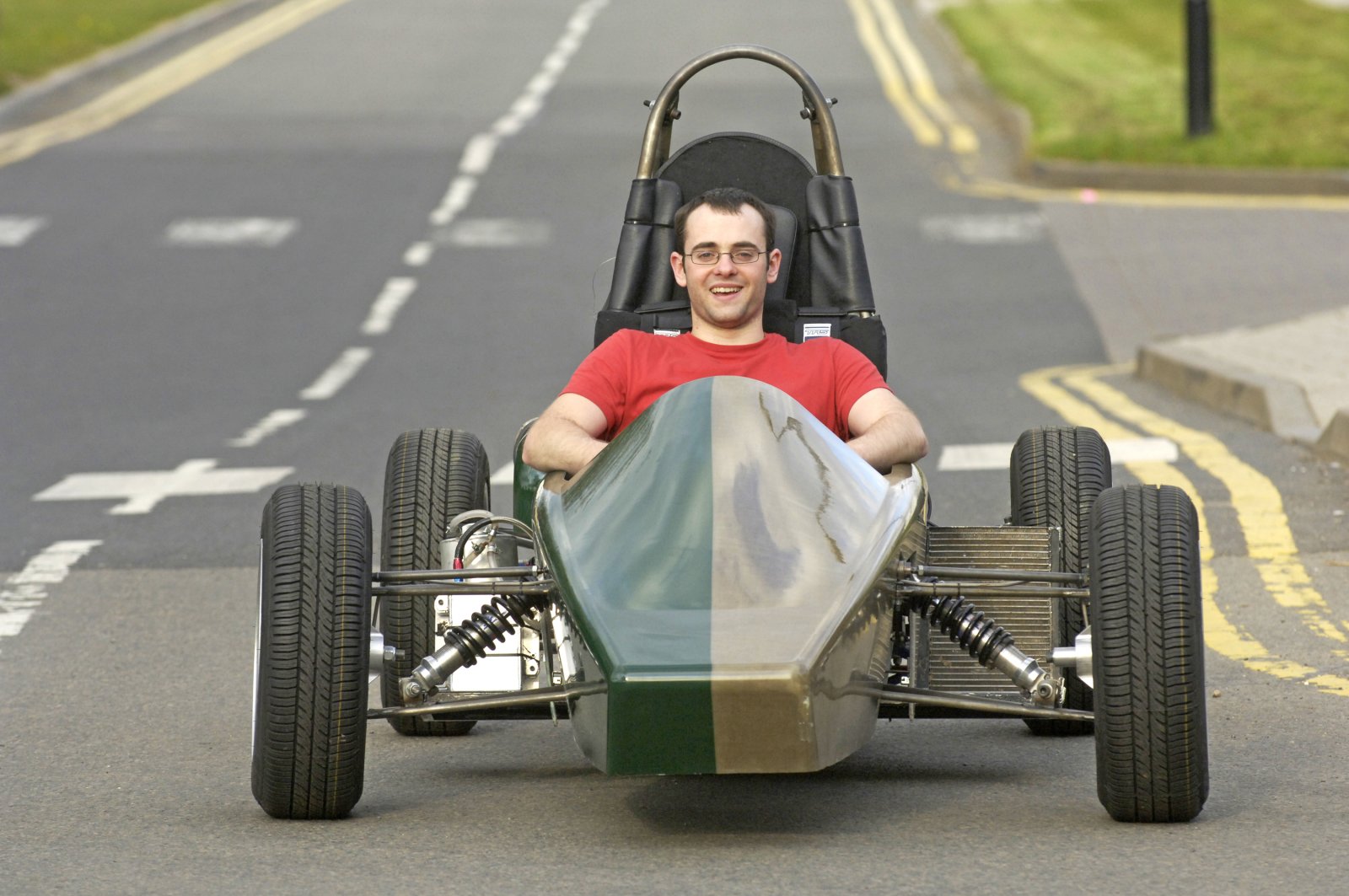F1 goes Green!
Interview with
We're all being asked to lower our carbon footprint and one area where you'd think this would be nearly impossible is the world of Formula one racing. But scientists are now working on a way to reduce the damage that results from this sport. Meera went along to the Science Museum to find out how.
Meera - Everything you hear about these days has a 'green' or 'eco-friendly' statement attached to it and cars are bang in the middle of it all. I'm sure you've probably heard of biofuels, but how exactly do these benefit the environment?
Biofuels , like bioethanol and biodiesel, are a whole new type of fuel that run cleaner and save those precious fossil fuels. When we burn fossil fuels we release carbon dioxide and increase its concentration in the atmosphere. Biofuels are made from plant sources and as plants absorb CO2 from the atmosphere to photosynthesise, the CO2 released from burning plants in the form of biofuels doesn't produce a net gain in atmospheric carbon dioxide in the same way that fossil fuels do. Fossil fuels release carbon which was previously locked away safely underground.
Basically it's all about reducing emissions. But the image of eco-friendly doesn't really put them in the same league as a Ferrari or a Porsche...does it?
Well, not anymore! because a group of scientists at the University of Warwick have set out to do just that. They plan to get eco-cars not only into this league, but make them better than those flash, mid-life crisis, bank-breaking beasts and get them into the world of Formula 1.
The team recently displayed their results at the science museum in London, so I went along to meet the teams and had a chat with Ben Woods, research engineer on the Warwick team.
 Ben - The bodywork is made from hemp, or marijuana, as some people know the plant as and its held together with a resin made from plant oils. The tyres are made from about 1.5% potato starch which replaces some of the fossil fuels and nasty bits and pieces that go into a normal tyre compound. We've got cashew nut brake pads believe it or not made from cashew nut shells and various other bits and pieces then we have bioethanol fuel made from wheat and oil made from plant oils again, it's completely biodegradable.
Ben - The bodywork is made from hemp, or marijuana, as some people know the plant as and its held together with a resin made from plant oils. The tyres are made from about 1.5% potato starch which replaces some of the fossil fuels and nasty bits and pieces that go into a normal tyre compound. We've got cashew nut brake pads believe it or not made from cashew nut shells and various other bits and pieces then we have bioethanol fuel made from wheat and oil made from plant oils again, it's completely biodegradable.
Meera - So is this total car biodegradable?
Ben - We think between 90 and 95% is either biodegradable or recyclable. Some of the metal components are recyclable but we can't replace those for safety reasons with environmentally friendly materials. We basically wanted to show that race cars can have a conscience. You can have an environmentally-friendly car that is good to drive and is nice and fun, because quite often the misconception is that they have to be slow and boring, so we've got a car here that has a better power: weight ratio than a Ferrari Enzo.
Meera - Are you going to be racing this? What are you going to be racing this in?
Ben - We're a bit of a victim of our own success in that this is the only car of its type in the world, so its very difficult for us to race anything. We've got Eco² in the pipeline which is the slightly twee name for the second generation of this car. That's going to be a Formula 2000 chassy and basically we'll be hoping to race that using a biodiesel powered engine.
Meera - So could I just ask, how fast does this vehicle actually go?
Ben - Well Eco1 will hit 60mph from a standing start in about 3 seconds, has a top speed of between 140mph and 150mph.
Meera - That's impressive. Are you looking to expand that for your 'squared' version?
Ben - Well that car will have downfalls. It'll have bug wings like a Formula one car so we're hoping it'll be a bit more stable around the fast corners. I've only taken this car up to about 120mph at the moment through fear!
Meera - What do you think the future for more everyday cars is?
Ben - Well we like to think that a lot of the technology and the materials we've used can be carried over to the mainstream automotive industries. Such as the tyres, the oil, the fuels and the brake pads. The body panels can be carried over into other forms of motor sport, and it's excellent doing an event like this because it means we can enlighten people about the material and technologies that are available to them.
Meera - So you're out to prove that eco-friendly cars don't have to be slow and boring?
Ben - Absolutely right, yeah.
So there you have it, the must-have vehicle of the moment is not a gas-guzzling Chelsea tractor but an emission-reducing eco-friendly car. Soon Louis Hamilton could be racing around the track in potatoes and hemp! Just wait and see....
- Previous Breastmilk and Nicotine
- Next The BA Festival of Science









Comments
Add a comment